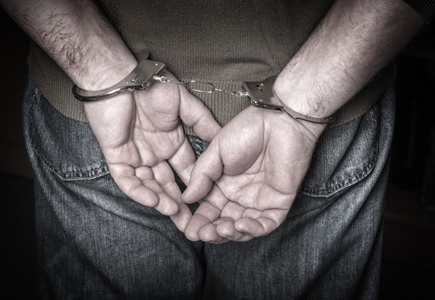Police have today, 9 July, launched a campaign to raise awareness of dangerous drug networks and how the public can help spot the signs of these criminal activities taking place in our community.
County lines is a term used to describe urban gangs supplying drugs to other parts of the UK using dedicated mobile phone lines. The gangs are likely to exploit children or vulnerable adults to move and store drugs and they will often use coercion.
This is a national trend and there are criminal gangs using the county lines operating model across Dorset Police.
The force’s county lines lead, Superintendent Caroline Naughton, said: “As part of our continuing commitment in tackling this nationwide matter, we are appealing to the public to learn to spot the signs of county lines within their communities.
“We want to reaffirm that Dorset is not a safe refuge for drugs supply chains and any person coming to the area intending to be involved in drugs or dangerous drugs networks will face prosecution.
“We have teams across the force area who focus on disrupting these county lines and on protecting the vulnerable people who have been coerced into involvement. Dorset Police is also working closely with other forces across the country, as well as the Regional Organised Crime Unit, to share intelligence and best practice to target dangerous drug networks.
“Neighbourhood teams and response officers are regularly patrolling areas that are known for ‘street dealing’ and helping to build an environment where there is no safe place left to hide for those involved.”
An operating base is an essential feature of the county lines criminal model. Gangs will regularly exploit vulnerable people, forcing them to build up a debt or using threats of violence in order to take over a person’s home, a practice known as ‘cuckooing’.
Superintendent Caroline Naughton continued: “Police have worked to identify individuals who might either be susceptible to, or victims of, drugs networks taking over their home. Once into the address drug dealers use this as a base to run their activity for short periods of time before moving on.
“County lines gangs also target young people, women and vulnerable adults to deliver drugs and money between locations for them.
“Dorset Police knows that county lines is not a problem that can be solved by police efforts alone. We will continue to work with our partner agencies and our communities to tackle the issue and send a clear message to county lines gangs that they are not welcome in our community.”
The Police and Crime Commissioner for Dorset, Martyn Underhill, said: ‘Dorset Police is working hard with the National Crime Agency, regional teams and partners to tackle the harm caused by county line gangs. However, it is important that the public become more aware of what ‘county lines’ is and how to spot it in our communities. County lines leaves vulnerable people more damaged, and really impacts on communities.
“I can announce that county lines will be the subject of my next Problem Solving Forum. This will be the third forum where partners and stakeholders are brought together to facilitate more effective joint working on issues that are long-standing, reoccurring and require a multi-agency response and that’s what I think county lines need – a whole community response.’’
A young person’s involvement in county lines often leaves signs, below are some of the indicators of county lines involvement and exploitation:
• A child or young person going missing from school or home or significant changes in emotional well-being
• A person meeting unfamiliar adults or a change to their behaviour
• The use of drugs and alcohol
• Acquiring money or expensive gifts they can’t account for
• Lone children from outside of the area
• Individuals with multiple mobile phones or tablets or ‘SIM cards’
• Young people with more money, expensive clothing, or accessories than they can account for
• Unknown or suspicious looking characters coming and going from a neighbour’s house
• Relationships with controlling or older individuals or associated with gangs
• Suspicion of self-harm, physical assault or unexplained injuries
Gangs may also target women who tend to be drug users or have engaged in a relationship with a gang member. They can become victims of sexual and domestic violence and can also be coerced into delivery drugs or money for the gang.
Vulnerable adults who are in financial difficulties or who have mental health problems are usually the most likely victim of cuckooing.
If you have concerns surrounding children, follow safeguarding procedures and share your concerns with local authority social care services.
If you are being affected by any of the above or know someone who is, then contact Dorset Police by calling 101 or contact us via our website on Do It Online.
Alternatively, you can call Crimestoppers anonymously on 0800 555 111.
Further information on County Lines can be found on our website: www.dorset.police.uk/county-lines











